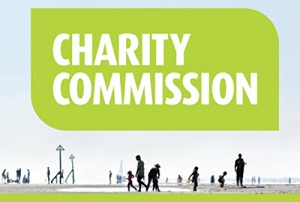Charity Commission Consults on New ‘Warning’ Power
Charity Commission Consults on New ‘Warning’ Power

The Charity Commission is seeking feedback from professional advisers and others on its plans for using a new power to issue an official warning to charities when it considers that there has been a breach of trust or duty, or other misconduct or mismanagement.
The commission is asking for comments on four main points:
- its overall approach
- how it will use this new power
- how it will give notice and consider representations
- and how it will publish official warnings.
The power will support the commission in its regulatory work of upholding public trust and confidence in charities by dealing proportionately and effectively with wrongdoing which erodes that trust, it says.
The draft guidance says the commission could issue warnings automatically to charities that fail repeatedly to file their accounts with the commission or file them late. It states that the power will supplement the commission’s existing powers for dealing with wrongdoing in charities.
New power will come into effect in October
The new power, which was included in the Charities (Protection and Social Investment) Act 2016, and is expected to come into effect in October, will enable the commission to issue a warning to a charity trustee or a charity itself when it considers there has been a breach of trust or duty, misconduct or mismanagement that represents a mid or low-level concern but is not serious enough to warrant a statutory inquiry.
The draft guidance says a warning could be triggered by any act that might lead to a charity’s reputation being harmed, charitable resources being lost or misused or beneficiaries being put at risk, or by the charity acting inconsistently with trustees’ duties and legal duties or the governing document.
It could also be prompted by someone committing an act they knew or ought to have known was criminal, unlawful or improper, the commission says.
Once a warning is issued, a charity will not be able to appeal at the charity tribunal.
Sarah Atkinson, the commission’s director of policy and communications, said: “The power to issue an official warning is an important new power for the commission to tackle misconduct and mismanagement proportionately and effectively.”
The consultation closes on September 23rd.
Some fear the draft is misleading
Charity lawyers have expressed concerns about the commission’s draft guidance. Some have said that the guidance was misleading and could lead to a rise in the number of charities seeking judicial review, and others have claimed warnings could have a detrimental effect on charities’ attitudes to risk.
The National Council for Voluntary Organisations (NCVO) also voiced concerns that the way in which the guidance was worded suggested the power would be used to give the commission a high degree of discretion.
Elizabeth Chamberlain, policy manager at the NCVO, said: “Our concern has never been with the existence of a warning power but rather the lack of safeguards attached to it. The proposals outlined here, while giving some further impression of how the power may be used, would continue to give the commission a very great degree of discretion in how and when it would issue a warning.”
Meanwhile, Andrew O’Brien, head of policy and engagement at Charity Finance Group, said: “The consultation on the commission’s warning power still leaves charities none the wiser as to how this power is going to be used and what problems it is trying to solve.”
He continues: “There is a real danger that this warning power will be used as regulatory lightning bolts, to crack down on those charities where the commission doesn’t agree with decisions, but for which there is questionable ground for statutory inquiry. This consultation, which was supposed to give assurance to the sector that this was not going to be the case, has done nothing to ease concerns.”
A spokesman for the Charity Commission said the public expected charities to be more open and transparent and also expected the commission to publish more information on charities. He said the draft guidance made it clear that an official warning was different from a statutory direction, which the commission could issue only after it had opened a statutory inquiry. There were only specific circumstances in which the commission could direct trustees to take a particular action, or refrain from it, he added.
Charities law experts
IBB Solicitors’ specialist Charities team has over 50 years’ combined experience in delivering practical commercial advice to charities and not for profit organisations and those who work with them. For advice, contact a member of the team, call us on call us today on 01895 207809 or email charities@ibblaw.co.uk.
You may also be interested in
Charity mergers and acquisitions: Due Diligence
